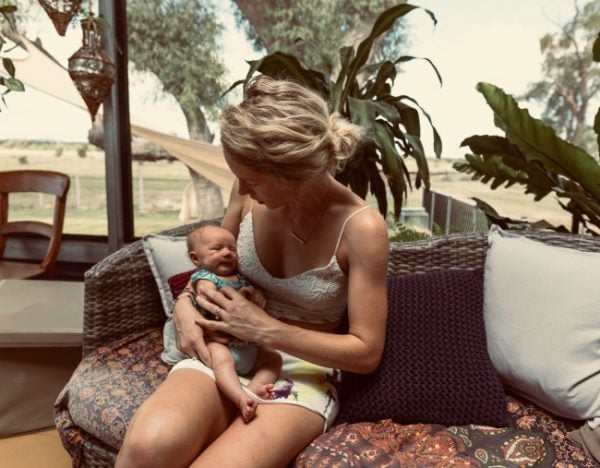There are five little words that ruin breastfeeding.
“Have you got enough milk?”
Don’t feel bad if you have said this to a woman trying to breastfeed – you probably had no idea of the devastating impact this could have on her confidence and her ability to feed her baby. Just pinky-swear promise me you will never say it again. Because chances are she has already asked herself that very question thousands of times since her baby was born. She doesn’t need you questioning her milk supply, too.
For some reason it has become acceptable to openly question, or even pass judgement on, the quality and volume of a woman’s breastmilk. To her face. During my time breastfeeding, this happened to me on countless occasions. My milk was discussed by friends, family, medical staff, people in the street and a lady in the chemist. I was asked if my milk had ‘dried up’ and on another occasion I was described as a ‘good milker’.
I have even had people question the size of my breasts and how that correlates to my ability to breastfeed my baby. They sometimes go so far as to express wonderment that my smallish boobs can feed a baby. Not only is this very strange behaviour, it is also harmful and downright incorrect. This kind of talk is also partly responsible for one of the most worrying public health trends in recent memory – very low rates of breastfeeding. So it is imperative that we set the record straight.
Firstly, there is no such thing having ‘good’ or ‘bad’ milk. Within a species, the composition of milk (in terms of fat content, vitamins, minerals and a myriad of hundreds of other compounds) remains extremely similar from woman to woman, varying only slightly on a microscopic level depending on the needs of the baby. Between species it’s another story and composition varies wildly.


Top Comments
It's just so sudden being asked by that question. Breastfeeding is stressful enough but the fullfilment of seeing your child growing well because of your breastmilk is one of the best feeling. BF-ing women should not pay attention to others words.
when did women get so insecure?
I don't feel insecure at all - I'm just really concerned the discourse around breastfeeding and milk supply is not conducive to improving rates of breastfeeding in Australia.